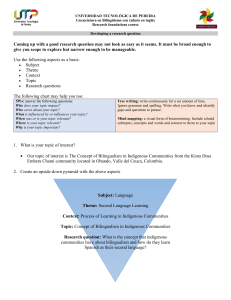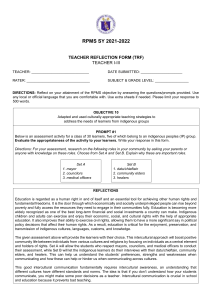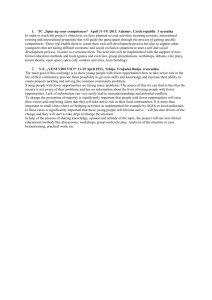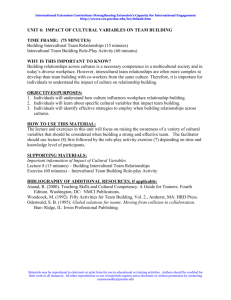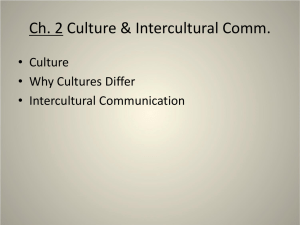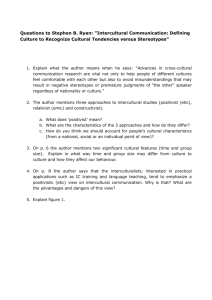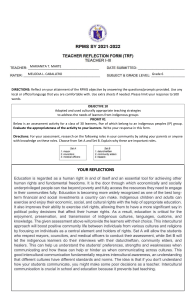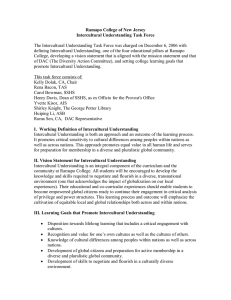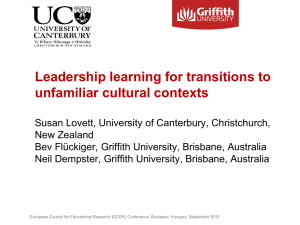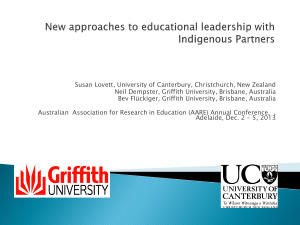Skills for a Sustainable World Intuitive Interspecies Communication
advertisement
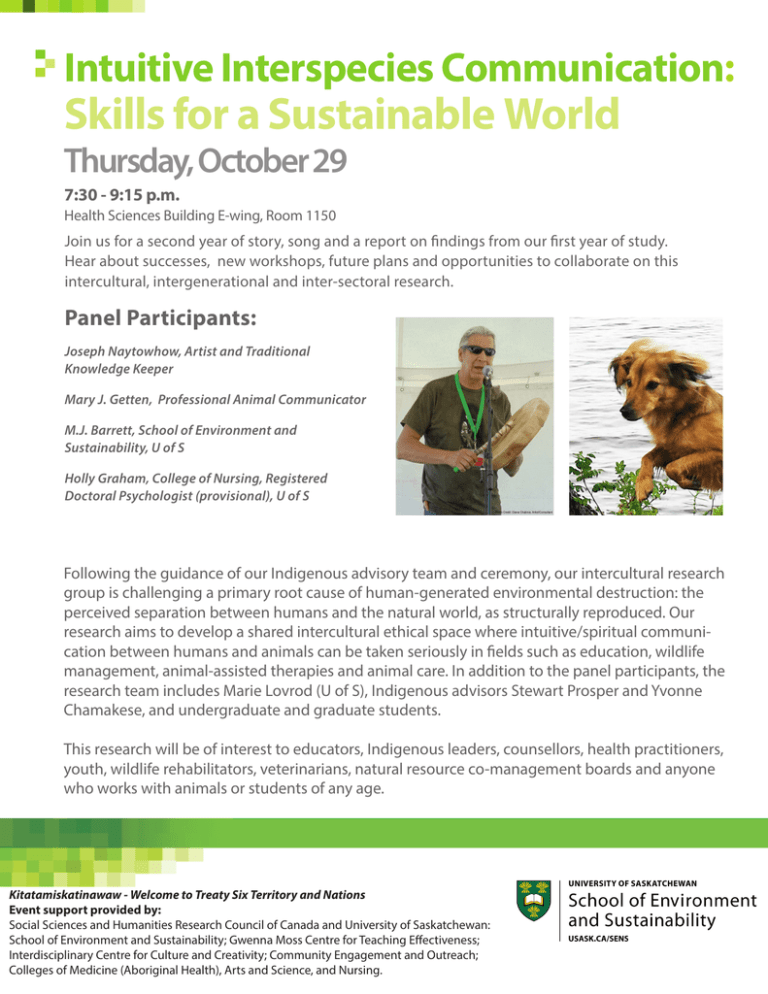
Intuitive Interspecies Communication: Skills for a Sustainable World Thursday, October 29 7:30 - 9:15 p.m. Health Sciences Building E-wing, Room 1150 Join us for a second year of story, song and a report on findings from our first year of study. Hear about successes, new workshops, future plans and opportunities to collaborate on this intercultural, intergenerational and inter-sectoral research. Panel Participants: Joseph Naytowhow, Artist and Traditional Knowledge Keeper Mary J. Getten, Professional Animal Communicator M.J. Barrett, School of Environment and Sustainability, U of S Holly Graham, College of Nursing, Registered Doctoral Psychologist (provisional), U of S Following the guidance of our Indigenous advisory team and ceremony, our intercultural research group is challenging a primary root cause of human-generated environmental destruction: the perceived separation between humans and the natural world, as structurally reproduced. Our research aims to develop a shared intercultural ethical space where intuitive/spiritual communication between humans and animals can be taken seriously in fields such as education, wildlife management, animal-assisted therapies and animal care. In addition to the panel participants, the research team includes Marie Lovrod (U of S), Indigenous advisors Stewart Prosper and Yvonne Chamakese, and undergraduate and graduate students. This research will be of interest to educators, Indigenous leaders, counsellors, health practitioners, youth, wildlife rehabilitators, veterinarians, natural resource co-management boards and anyone who works with animals or students of any age. Kitatamiskatinawaw - Welcome to Treaty Six Territory and Nations Event support provided by: Social Sciences and Humanities Research Council of Canada and University of Saskatchewan: School of Environment and Sustainability; Gwenna Moss Centre for Teaching Effectiveness; Interdisciplinary Centre for Culture and Creativity; Community Engagement and Outreach; Colleges of Medicine (Aboriginal Health), Arts and Science, and Nursing.
